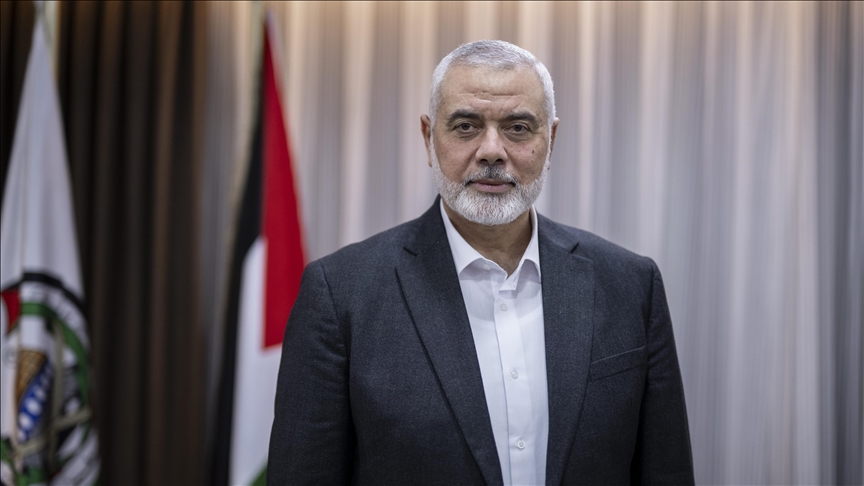CAIRO
The leader of Hamas’ Political Bureau on Sunday affirmed that his movement’s response to the cease-fire proposal aligns with the principles outlined in US President Joe Biden’s speech and the UN Security Council resolution regarding the Gaza Strip.
Ismail Haniyeh’s remarks came during his Eid al-Adha speech following official US accusations against Hamas for diverging from a cease-fire proposal supported by Biden.
“Another holiday unfolds for Palestine as it continues its struggle against occupiers on all fronts,” said Haniyeh.
“The Israeli enemy committing severe atrocities and genocide has failed to achieve its stated objectives, with signs of internal disarray appearing in its government,” he added.
Regarding the cease-fire proposal, Haniyeh said: “Our response to the cease-fire proposal aligns with the principles outlined in Biden’s speech and the (UN) Security Council resolution.”
On June 10, the council approved a draft resolution, supported by the US, calling for a cease-fire, which Hamas welcomed at the time expressing its intention to respond positively.
The Hamas official also said: “The Israeli occupation continues its deception attempts to resume its war of annihilation against Gaza.”
In the midst of a severe food shortage in the Gaza Strip, Haniyeh urged for taking “action to compel the Israeli enemy to immediately open all crossings and supply all the necessary needs of our people.”
Israel has faced international condemnation amid its continued brutal offensive on Gaza since an Oct. 7 attack by Hamas despite a UN Security Council resolution demanding an immediate cease-fire.
Nearly 37,300 Palestinians have since been killed in Gaza, most of them women and children, and nearly 85,200 others injured, according to local health authorities.
More than eight months into the Israeli onslaught, vast tracts of Gaza lay in ruins amid a crippling blockade of food, clean water, and medicine.
Israel is accused of genocide at the International Court of Justice, whose latest ruling ordered Tel Aviv to immediately halt its operation in Rafah, where more than 1 million Palestinians had sought refuge from the war before it was invaded on May 6.

